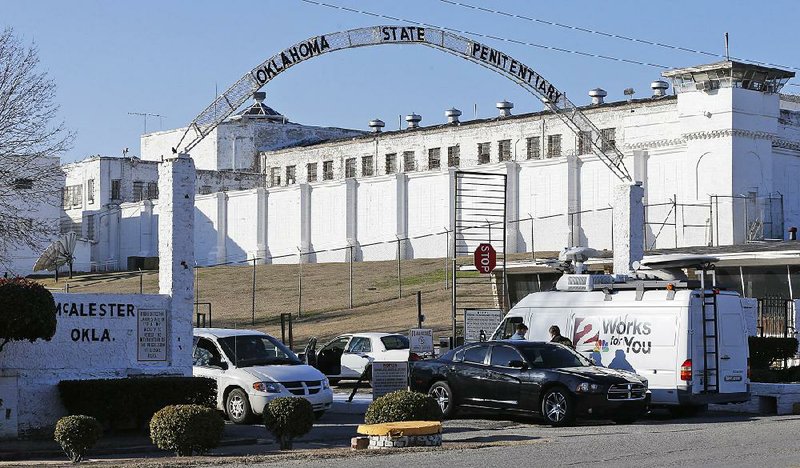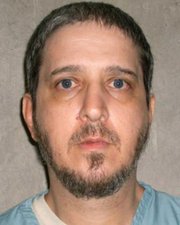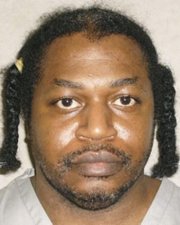No executions will be scheduled in Oklahoma until at least next year as the state's attorney general investigates why the state used the wrong drug during a lethal injection in January and nearly did so again last month.
RELATED ARTICLE
http://www.arkansas…">Executioners' drug expiring in 8 months

EXECUTIONS: In-depth look at 4 men put to death in April + 3 others whose executions were stayed
Click here for larger versions
Attorney General Scott Pruitt made the announcement Friday while he and attorneys representing several death row inmates asked a federal judge to suspend a lawsuit that challenges Oklahoma's lethal-injection protocol. The judge agreed after both sides said they wanted the case put on hold while Pruitt investigates how the state twice got the wrong drug.
The agreement came the same day that officials in Arkansas -- where a judge last week halted all scheduled executions -- asked the state Supreme Court to allow lethal injections to resume next week. Inmates there are challenging a state law that allows prison officials not to disclose where they get execution drugs. Oklahoma has a similar law.
The latest investigation into Oklahoma executions came after Gov. Mary Fallin called off the execution of Richard Glossip just hours before his lethal injection was to begin on Sept. 30. Fallin stepped in when prison officials discovered they had potassium acetate instead of potassium chloride, the specified final drug in Oklahoma's three-drug lethal injection process.
A week later, a newly released autopsy report showed that Oklahoma used potassium acetate to execute Charles Warner in January, contradicting what the state publicly said it had used. Warner had originally been scheduled to die in April 2014, the same night as Clayton Lockett, who writhed and moaned before dying 43 minutes after his initial injection. Lockett's botched execution also prompted the state to put executions on hold amid an investigation.
The Oklahoma Court of Criminal Appeals has issued indefinite stays for Glossip and two other inmates who were set for execution this year.
Friday's court filing said Pruitt won't request any execution dates until at least 150 days after his investigation is complete, the results are made public, and his office receives notice that the prisons department can comply with the state's execution protocol.
An attorney for the inmates didn't immediately respond to a request for comment Friday.
The next inmate scheduled to die was Glossip, but the governor stepped in after learning that a pharmacist -- whose identity is shielded by state law -- had given the prison potassium acetate. Prison authorities contacted the supplier, "whose professional opinion was that potassium acetate is medically interchangeable with potassium chloride at the same quantity," Oklahoma prisons director Robert Patton said at the time.
In related news, Nebraska's Secretary of State John Gale announced Friday that the state's death penalty supporters gathered enough valid signatures to prevent a state law repealing capital punishment from going into effect until the November 2016 election.
Nebraska lawmakers abolished the death penalty in May, prompting a petition drive for a ballot measure to overturn their decision. The issue had already qualified for the ballot, but Friday's announcement confirmed that the petition drive succeeded in keeping the death penalty an option in Nebraska.
A Section on 10/17/2015





